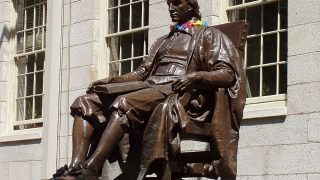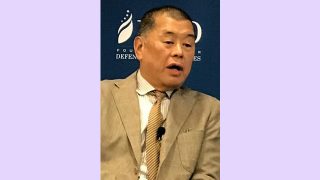
RFA
China’s ministry of education has banned the use of apps by students from elementary school to university that don’t fit in with government guidelines, or that “violate educational rules,” official media reported.
Education officials across the country are being ordered to set up “daily supervision” of students, including those in primary and high school education, “to ensure that mobile device apps used by the schools meet the standards set by the ministry,” state news agency Xinhua reported.
“Some apps contain pornography, violence, online games, commercial advertisement, as well as those that violate education rules,” the agency said, citing education officials in Beijing.
“Negative content can impact the physical and psychological health and education of students,” it said.
All content, links, functions, and information security of apps on students’ phone should be “strictly reviewed” and the results filed to higher education authorities for approval, the agency said.
Apps and their updates that aren’t reported to and approved by the education ministry are forbidden to be used by schools, it said.
An elementary school teacher in the central Chinese province of Hubei, who gave only a surname Su, said the directive increases the political pressure on teachers.
“Of course this is pressure, because we are already pretty busy, and now we have to worry about what we can say and what we can’t say,” Su said. “This will have a negative impact on our ability to deal with problems of sexuality and violence at source, and it’s not right.”
“Trying to control their understanding of events using directives, orders, and regulations is like shutting the stable door after the horse has bolted,” Su said. “You can’t require tens of millions of teachers to educate according to the exact same model.”
A parent of a primary school student surnamed He in the southern province of Guangdong said parents and schools are quite capable of guiding children in the use of appropriate apps without ministerial intervention.
“The teachers can just tell parents about actual apps that are fairly harmful,” He said. “If the authorities try to use a one-size-fits-all rule, then this could cause even more of a backlash.”
“More rules controlling people’s behavior aren’t necessarily going to do a better job,” he said. “It could actually cause great harm to the kids, to parents, and even to the teachers.”
Independent voices
A Hubei elementary school teacher surnamed Li said smartphones are now so ubiquitous in China that the authorities are beginning to fear their own population’s access to information outside the Great Firewall.
“Even people in the countryside who don’t have much education are able to use smartphones, and a lot of people can get online where they’ll be able to get a lot more information than they had before,” Li said.
Beijing-based rights activist Hu Jia, who has a daughter at elementary school, said the children could lose access to the remaining independent voices among Chinese scholars and experts, who make educational and public service films to help young people.
“These are independent voices with a different view of history and the world,” Hu said.
“I think the most likely approach [from the schools] will be, OK, we are now going to censor your smartphone,” Hu said. “This puts the power to censor pupils’ private communications straight into the hands of schools and teachers, who will then report them to higher levels of government.”
“Then the internet police will shut down the app they are using.”
‘All-seeing eye’
Last year, authorities in the eastern province of Zhejiang installed an “all-seeing eye” in a high-school classroom to spot students who aren’t paying attention or are falling asleep in class, official media reported.
The new system at the Hangzhou No. 11 High School links up a surveillance camera to facial recognition software that tracks students’ movements and facial expressions, according to the Zhejiang Daily newspaper.
The technology is part of a trial of software and surveillance systems that could be rolled out elsewhere as part of the development of “smart campuses,” the paper said.
Meanwhile, several university lecturers have lost their jobs after students reported them for making ideologically “incorrect” comments in class.
Since taking office in 2012, Xi Jinping has tightened ideological controls over all aspects of society, including universities, colleges, and schools.
His approach stems from a 2013 article titled “Improving Ideological and Political Work Among Young Teachers in Colleges and Universities,” and from Xi’s reiteration of the “Seven Taboos”: topics that mustn’t be discussed in public by servants of the state, including teachers.
The seven banned topics are: universal values of human rights and democratic, constitutional government; press freedom; civil society; citizens’ rights; the historical mistakes of the Chinese Communist Party; the financial and political elite; and judicial independence.
Reported by Gao Feng for RFA’s Mandarin Service, and by Wong Lok-to for the Cantonese Service. Translated and edited by Luisetta Mudie.
Source: Copyright © 1998-2016, RFA. Used with the permission of Radio Free Asia, 2025 M St. NW, Suite 300, Washington DC 20036. https://www.rfa.org.



